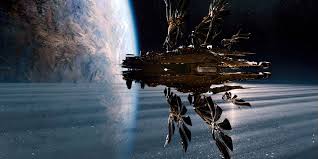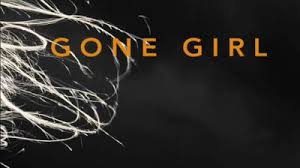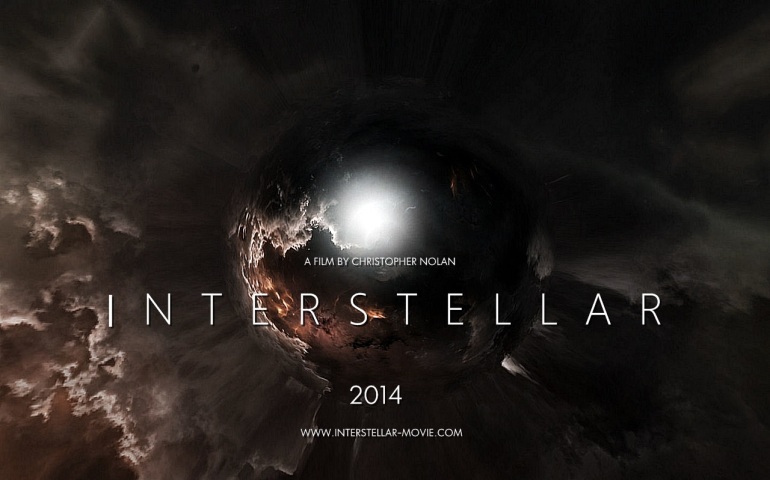Drink in that picture isn’t it very pretty? Yep it’s lovely. Congratulations you’ve got the best that this film has to offer. Which film is it you ask? Why it is Jupiter Ascending of course the latest offering from the Wachkowski’s of Matrix, Speed Racer and Cloud Atlas fame.
Review
Typically, I put a plot synopsis before these reviews afterall it good to give everyone an idea of the film. I’m not bothering in this case though because, the plot of this one is almost completely non-existent. No one connected with the writing of this film spent anytime looking at the script of dialogue for this one and boy oh boy does it show.
I’m a fan of the Wachowski’s and I’m a fan sci-fi who enjoys space opera. It isn’t a genre that gets put out much in blockbuster form in the cinema anymore. In fact big budget action films don’t get put out anymore unless they are a Marvel properties.
Finding myself unexpectedly with a free afternoon and finding that Ex Machina wasn’t on for hours but Jupiter Ascending in 3D was I took the plunge and stumped up for a ticket plus 3d glasses. I’m not asking for my money back but it was close.
To give the film a brief bit of praise it is visually stunning and if you are going to see it you might as well see it in 3D. The extra dimension whilst not in any way necessary does at least provide an extra veneer of entertainment and as 3D goes it is done really well.
I can’t put it off any longer lets talk about the “plot”.
The main character is a princess who gets to inherit Earth as her birthright. Far enough you think lets run with that only it isn’t that simple because, technically she is a reincarnation of the mother of this family that owns the planet Earth along with thousands of other planets. How is she a reincarnation you ask?
Well as a brief bit of dialogue tells us it is spiritual for these space humans so we wouldn’t understand it but be assured audience that the main character is an exact genetic replica of the ruling matriarch of this space royal family and therefore she can inherit. Do her children like this though? Well the daughter kind of seems to. One son wants to marry his mother so he can then kill her and get Earth (talk about mommy issues) and the other son (Eddie Redmayne) just wants mommy dearest dead.
You might be confused by all that but let me assure I’ve given it as much thought if not more than the film makers did. Theoretically, this reincarnation idea that could be interesting and the directors have certainly shown themselves willing/able to deal with complex issues in other sci-fi films they have done.
In this case though there is no explanation or thought about the plot or Lord forbid any themes. Instead I found myself wondering about incidental things such as how stupid is the dad to fight over and get killed over a telescope when the robbers are leaving? If the main character is meant to be an exact genetic replica of the mother shown in the stature then why doesn’t the statute look more like her? Or even more puzzlingly if the main character has a Russian family but has lived and worked in the USA all her life then why does her Russian/American cousin have a broad Aussie accent? When you are watching a sci-fi film with talking dinosaurs, bee-man hybrids, wolf-man hybrids and you are wondering about such things than you know the film is in deep smelly trouble without a paddle.
If the film isn’t a classic then you might hope to enjoy it either as cheesy fun or as so-bad-it’s-good fodder. Sadly, it doesn’t do either. The actor performances are all very toned down save for Eddie Redmayne who is doing some bizarre low voice thing that might be his attempt at scenery chewing camp but succeeds neither in being entertaining or making you think he is a villain of any note.
The film then lacks any interesting characters, plot or stakes. The characters kind of wonder from one event to another without ever being in any threat.
Even when Channing Tatum’s character is dumped out of an airlock there is no sense of peril. There is no hint at how he will survive but you can’t believe that the film would kill a character off or come up with a clever way for the character to live and so it doesn’t. Tatum’s wolf-man hybrid survives because he kicked off a piece of the space ship as he was ejected and this piece of spaceship apparently doubles as a space suit. So the bad guys are so incompetent that when executing someone by spacing him they leave behind a spacesuit for him to survive! WTF! If I wasn’t so bored by this point that a nap seemed interesting I might have got annoyed.
Jupiter Ascending has little to it apart from looking good. Given how they adapted Cloud Atlas to the big screen one can only presume that the Wachowski’s felt the need to do something more narratively simple as a palate cleanser. Unfortunately, Jupiter Ascending doesn’t cleanse the palate but leaves a bad taste in the mouth.









